For US universities, Arab and Muslim lives do not matter
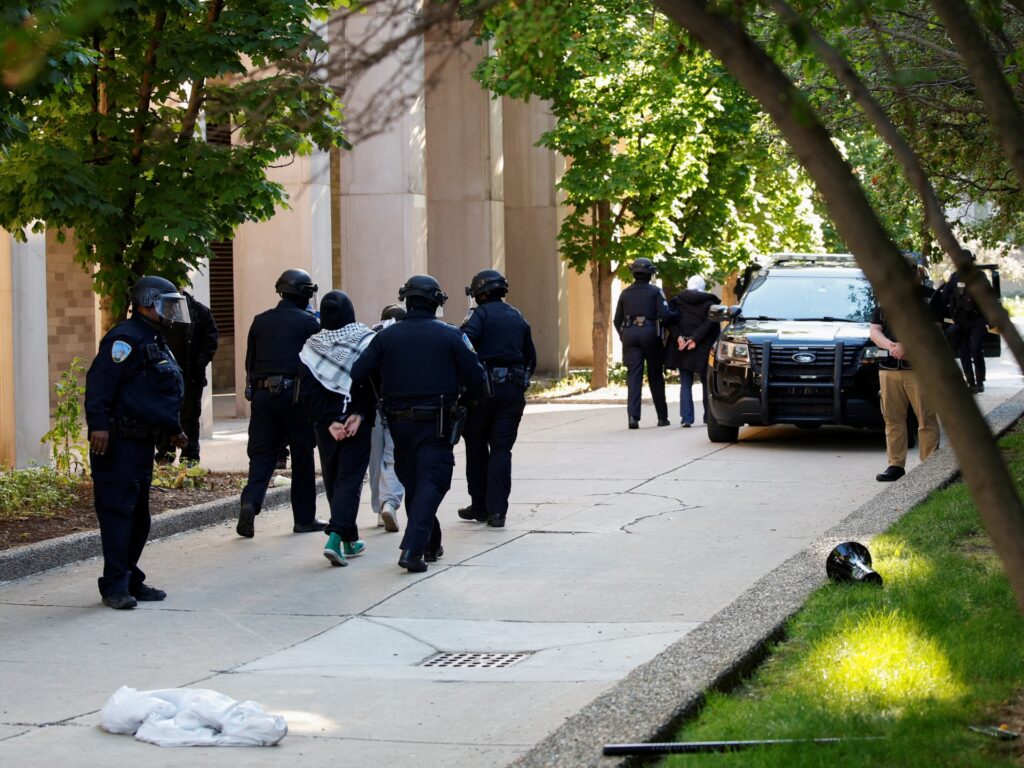
On October 7, the Tahrir Coalition, a union of pro-Palestinian organisations at the University of Michigan, posted on social media what it said was a recording of the university’s president, Santa Ono. In the audio file, a man’s voice can be heard talking about pressure from “powerful groups” and the threat of withholding federal funding if the university administration does not focus almost exclusively on combating anti-Semitism. He states: “The government could call me tomorrow and say, in a very unbalanced way, the university is not doing enough to combat anti-Semitism. And I could say it’s not doing enough to combat Islamophobia, and that’s not what they want to hear.” Although the Tahrir Coalition did not explain how they obtained the recording or when and where it was made, neither Ono, nor the university disputed its authenticity. Instead, the university administration issued a statement to the local newspaper Metro Times, saying: “The University of Michigan is steadfastly committed to ensuring our community remains a safe and supportive environment, where all students – regardless of race, religion, ethnicity or other identities – have the opportunity to learn and thrive.” The problem is that the university is not committed to the safety and support of Muslim and Arab students. Of course, we did not need the leaked recording to know that, but it does provide the general public with an explanation of the university’s utter failure to support marginalised students. Over the past year, we have watched in shock as mass slaughter has unfolded in Palestine – and, since September, in Lebanon. Israel has killed more than 42,000 Palestinians, including more than 16,000 children, and more than 2,300 Lebanese, including more than 120 children. For Palestinian and Lebanese students, the pain is acute. We have watched our homelands destroyed, our people slaughtered, tortured and starved. Yet, as we, along with many allies, have tried to process this trauma and advocate for human rights, we have been vilified and silenced on campus. Our existence has been reduced to a problem, our grief weaponised, our calls for justice criminalised. The same cannot be said about students who have actively advocated for Israel’s “right to self-defence” – a right that Israel does not have when it comes to resistance from a population it is occupying. The effect of this “unbalanced” approach is that today Muslim and Arab students face increased harassment and discrimination, and their attackers are only emboldened because they know there will be no consequences for what they do. The university’s hypocrisy became apparent to me and other Palestinian students almost immediately after October 7, 2023. On October 9, students at the Michigan Law School used the public law-open server, an email chain that connects everyone at the law school, to describe Palestinians as “animals” and their Muslim and Arab classmates as “rejoic[ing] in mass murder” and supporting rape. This language was reported to the administration, who took no action. As the greater Michigan student body started organising and protesting on campus, the university’s discrimination against marginalised students became even more apparent. It repeatedly sent campus police to disperse our protests and sit-ins, with students being physically assaulted, pepper-sprayed and arrested, while hijabs of female students were ripped off. It also ramped up surveillance. Police presence and the number of surveillance cameras around the Arab lounge on campus noticeably increased. The administration never issued any apology for nor condemnation of the extreme acts of police violence against students who were protesting a genocide that the university funds. It also did not act as accusations of anti-Semitism started being weaponised against us. It did not step in to differentiate between hatred against the Jewish people and the legitimate criticism and denunciation of genocidal Israel. It did not protect our right to protest and freedom of expression. Instead, it seemingly accepted the false equivalence of anti-Semitism and anti-Zionism. Over the summer, the Department of Education released a report about the supposed “failure” of the university to act on accusations of anti-Semitism. Among them were claims that anti-genocide protests created a “hostile environment” which the university did not investigate. The university easily succumbed to pressure and unilaterally changed campus policies to facilitate its crackdown on students engaging in pro-Palestinian activism. It did not consult faculty or the student body about them. The university administration has gone out of its way to address the sentiments of Jewish students on campus but has yet to utter one word to us, the Palestinians. One has to wonder how many more Palestinians have to be exterminated before Ono and the rest of the university leadership recognise our suffering, or if they even see us as human at all? Muslim, Arab and Palestinian students increasingly feel that our administration is fully comfortable with our people being slaughtered and our land being carpet-bombed. This attitude isn’t unique to the University of Michigan. Nationwide, more than 3,000 people have been arrested for pro-Palestine advocacy on college campuses in just six months. Universities that once championed free speech have become hostile environments for Muslim and Arab students and their allies. The chilling effect this has had is palpable. Many Muslim and Arab students now feel unsafe expressing their identities or views, fearing academic, legal and job prospect repercussions. For Palestinian students, this silencing is particularly traumatic – we are denied the right to mourn publicly or call for justice. Adding to our pain is the fact that our tuition dollars are invested in companies supporting violence against Muslims and Palestinians abroad. Despite protests, the University of Michigan maintains investments in companies linked to Israel, even though it was quick to divest from companies linked to Russia after its invasion of Ukraine. In response to the leaked audio, the Council on American-Islamic Relations Michigan Chapter (CAIR-MI) filed a complaint with the Department of Education Office of Civil Rights. The complaint calls for an investigation into whether the University of Michigan has followed “its obligations under Title VI of the Civil Rights Act as well as its
Who is Navya Haridas, BJP candidate set to contest against Priyanka Gandhi in Wayanad Lok Sabha bypoll?

The polling will held on November 13 and the result will be declared on November 23.
Fetterman issues warning to Democrats after Elon stumps for Trump in Pennsylvania

Pennsylvania Senator John Fetterman is warning fellow Democrats not to dismiss Elon Musk’s support for former President Trump in the Keystone State. Nineteen Electoral College votes are at stake in Pennsylvania on Nov. 5 and the state is rated a toss up by Fox News’ Power Rankings. With both Trump and Vice President Harris fiercely competing there, and the winner likely to take the White House, the plain-dressed and plainspoken Fetterman told the New York Post in an interview that “Musk is a concern.” “Not even just that he has endorsed [Trump], but the fact that now he’s becoming an active participant and showing up and doing rallies and things like that,” Fetterman said, explaining that the enormously successful Tesla and SpaceX CEO is an attractive figure for the kinds of voters Harris needs to win. “I mean, [Musk] is incredibly successful, and, you know, I think some people would see him as, like, a Tony Stark,” said Fetterman, referencing the popular Marvel Comics character. “Democrats, you know, kind of make light of it, or they make fun of him jumping up and down and things like that. And I would just say that they are doing that at our peril.” FETTERMAN ADMITS ELON MUSK ‘ATTRACTIVE TO A DEMOGRAPHIC’ DEMOCRATS ‘NEED’ TO WIN PENNSYLVANIA Musk, the world’s richest man, has described himself as a centrist and voted for Democrats in the past. He has since stated in various social media posts that the Democratic Party has drifted too leftward, embracing what he calls the “woke mind virus.” He appeared at a rally in Butler, Pennsylvania, alongside Trump earlier this month, where he told a crowd of Trump supporters that this is the “most important election of our lifetime.” Musk also posted on X that he would be speaking at a series of town hall events in the battleground state through the weekend. Additionally, the billionaire has put his money where his mouth is, donating $75 million to a pro-Trump super PAC, which focuses on voter turnout. TRUMP SUPPORTER ELON MUSK OFFERS MASSIVE HOURLY PAY TO THOSE WORKING TO INCREASE VOTER TURNOUT Fetterman, who at times has clashed with the progresive wing of his party, told the Post that while he is not in a panic over 2024, the election in Pennsylvania is “going to be ridiculously close.” “Trump has a connection that’s undeniable. And anyone that spends any time across Pennsylvania can see that kind of devotion and that’s why it’s going to be very close,” Fetterman said, “Pennsylvania picks the president.” Fetterman had stood solidly behind President Biden while other Democrats sought to drive the president out of the 2024 race after his widely-panned debate performance against Trump in June. He maintains that Biden would be competitive with Trump had he not withdrawn. “I’d like to remind everybody that Biden is the only person that’s ever beaten Trump,” Fetterman said, ELON MUSK UNVEILS TESLA’S ROBOVAN, ROBOTAXI, HUMANOID ROBOTS He described the effort to put Biden out to pasture as “a total blowtorch.” “You had the Democratic side, you have the ongoing, right wing media, and then the celebrities got involved in it as well, too. And then the New York Times became the, ‘he’s got to go’ outlet throughout all that as well.” Fetterman emphasized that he fully supports Harris now and believes she can win Pennsylvania. “Harris could not have run a better campaign than she has so far right now,” he told the Post. Fox News Digital’s Hanna Panreck contributed to this report.
Gunmen kill two Mozambique opposition officials before election protests
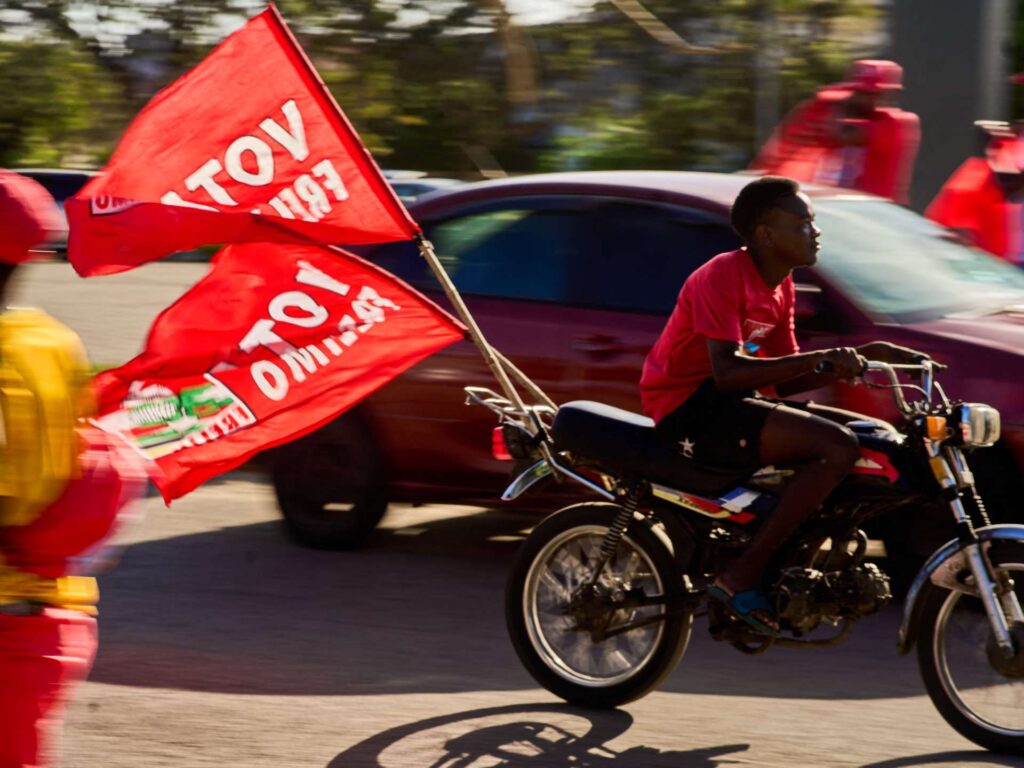
Podemos party’s lawyer Elvino Dias and party representative Paulo Guambe killed before protests against the disputed vote. Gunmen in Mozambique have killed a leading opposition politician’s lawyer and another opposition official, according to their party, before protests against a disputed election result. The attackers chased the car of Podemos party’s lawyer Elvino Dias and party representative Paulo Guambe and fatally shot them late on Friday night in the capital Maputo, the party said on Saturday. Videos on social media showed a BMW SUV in the middle of the road with numerous bullet holes in the bodywork. Some of the videos showed what appeared to be the bodies of two men, one with blood on his chest, in the front seats. The other body was slumped over. The killings came with tensions already high in the southern African country as it waits for the results of an October 9 election that has drawn more allegations of vote-rigging and clamping down on dissent against the 49-year rule of the Front for the Liberation of Mozambique (Frelimo) party. Podemos has rejected provisional results showing a win for Frelimo and called for a nationwide strike on Monday. Although Venancio Mondlane ran for president as an independent, he was supported by Podemos. The killings are “further clear evidence of the lack of justice that we are all subjected to”, Podemos stated. “They were brutally assassinated [in a] cold-blooded murder,” Adriano Nuvunga, director of Mozambique’s Center for Democracy and Human Rights (CDD), told the Reuters news agency by telephone. “The indication [is] that around 10 to 15 bullets were shot, and they died instantly.” Human Rights Watch also issued a statement confirming the attack. According to the latest election tally, Frelimo is leading in all 11 provinces and its candidate Daniel Chapo is widely expected to win the election. Chapo is expected to be announced as successor to President Filipe Nyusi, who has served a maximum of two terms. Podemos and other opposition parties have accused Frelimo of electoral fraud. Western observers have also cast doubt on the polls, citing reports of vote-buying, intimidation, and inflated voter rolls in Frelimo strongholds. Mozambique has struggled with these issues since Frelimo first introduced democracy in 1994 after two decades in power. The election’s final results are expected on October 24, but there are fears Monday’s protest could be violent. Mozambique’s security forces have opened fire on political protesters in the past, including after last year’s local elections, according to rights groups. Nuvunga, the NGO director, wrote on social media that the killing of Dias was a “political assassination”. Adblock test (Why?)
Is Sudan’s army regaining ground lost in the civil war?

The war in Sudan is entering a new phase as the Sudanese army and its rival, the paramilitary Rapid Support Forces (RSF) fight over the capital, Khartoum, and the last contested state in the sprawling western region of Darfur. The RSF has controlled most of Khartoum ever since the war erupted in April 2023. Here’s what we know about the situation today: What was life in Khartoum like under the RSF? The armed group, headed by Mohamed Hamdan “Hemedti” Dagalo, has looted and confiscated homes and warehouses across the capital. Whoever could flee Khartoum, has, but many others had to stay under the mercy of the RSF, which has subjected women to sexual violence and randomly rounded up and detained men for days or months. Those who lived under RSF rule say the paramilitary often killed families for refusing to hand over their daughters or mothers, as well as their homes and belongings. Has the army retaken Khartoum? On September 26, the army, which has also been criticised for human rights abuses and failure to protect civilians from the RSF, launched a sweeping offensive to retake the city. As warplanes and troops descended on Khartoum, the army finally recaptured some territory in the capital, according to local sources and reporters on the ground. The army has reportedly captured three bridges, including Halfaya, which allowed it to break an RSF siege on its military facilities in Kadroo, a nearby neighbourhood. Sudanese fighters from the Rapid Support Forces secure an area in East Nile province, Sudan, on June 22, 2019 [Hussein Malla/AP Photo] How are people reacting to the army’s advance? Most people are welcoming the army as liberators, relieved to have a semblance of stability return to their neighbourhoods. Yet despite the jubilation, the army is reportedly committing summary executions as it retakes territory – targeting people it perceives as affiliated with the RSF, according to analysts, the United Nations and local monitors. “These [executions] are definitely verified,” according to Hamid Khalafallah, a Sudan expert and PhD candidate at the University of Manchester. Al Jazeera sent written questions to Sudanese Armed Forces spokesperson Nabil Abdullah asking him to comment on the accusations. No response had been received by time of publication. Can the army retake all of Khartoum? This may be its best shot, but the battle is far from over. The army is trying to take the capital in hopes of securing leverage for future peace talks, Suliman Baldo, executive director of the Sudan Transparency and Policy Tracker think-tank, said. “[A situation] where the army controls Khartoum would boost its morale and it may have them believe that they made enough military progress to go towards negotiations,” he told Al Jazeera. However, Khalafallah stressed, the army is still far from controlling the entire city, despite its recent advances. “It is not clear how far the army is able to advance but they are putting up a big fight,” he said. Plumes of smoke rise during clashes between the paramilitary Rapid Support Forces and the army in Khartoum, Sudan, on September 26, 2024 [Stringer/Reuters] What about Darfur? The RSF is also fighting the army and its allied armed groups in el-Fasher, the capital of North Darfur. While the paramilitary controls four out of five Darfur states – East, West, Central and South – it has struggled to conquer North Darfur, which has put up fierce resistance. As fighting intensifies, the UN estimates that some 700,000 internally displaced people are at severe risk of being harmed in North Darfur, either from armed attacks or famine. The RSF has maintained a five-month siege on el-Fasher, which has wrought devastating suffering on civilians, according to aid groups. The aid groups added that about 2.8 million people live in and around el-Fasher, but have no means to escape. What’s more, they noted that boys were joining armed groups to earn a meagre salary, while families were marrying off young girls to have fewer mouths to feed. An internally displaced woman carries aid in sacks at a camp in Gadarif on May 12, 2024 [AFP] What’s next? The battle for Khartoum may determine the direction of the war in Sudan, according to experts. Baldo said he believes the army is trying to recapture Khartoum, as well as other major cities in north and central Sudan so it can then shift the focus of the conflict to Darfur. That’s where the RSF enjoys support from its “Arab” tribal base – a name that refers to pastoralist communities as opposed to sedentary farming communities that are often referred to as “non-Arabs”. Baldo added that the army would then try to destablise its foe. “I think the army may push for infighting [within the RSF] in Darfur,” he told Al Jazeera. Adblock test (Why?)
How Israel is trying to generate civil strife in Lebanon
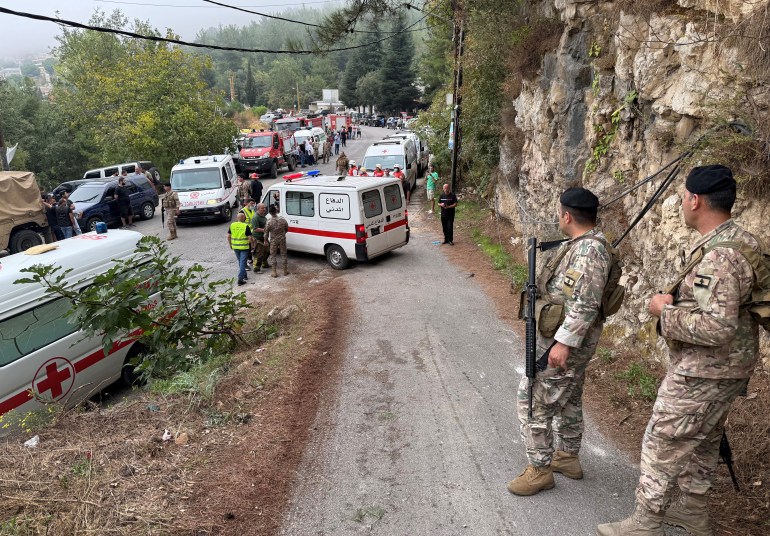
Beirut, Lebanon – On October 14, Israel killed 22 people in the northern Lebanese village of Aitou in an air attack. Israel claimed it struck a “Hezbollah target” but the attack on a predominantly Christian town has made many wonder if Israel is expanding its war to chase down Hezbollah members and mainly Shia Hezbollah supporters wherever they may have fled to. “I can only guess Israel’s motives, but obviously they are trying to make the Shia community toxic by trying to isolate them completely,” said Michael Young, a Lebanon expert for Carnegie Middle East Center. Fragile system Lebanon runs a confessional system, with political posts reserved for members of specific religious sects. The fragile system has been historically exploited by regional states for their own geopolitical goals, by dividing the country’s political factions and religious communities. In addition, each religious community typically lives in relatively segregated areas and neighbourhoods in Lebanon – largely an outcome of previous violent conflicts that degenerated into sectarian violence and led to the mass displacement of communities. The attack on Aitou harks back to Lebanon’s 15-year civil war (1975-1990) when the country got dragged into the broader Israeli-Palestinian conflict and descended into multi-faceted fighting. Now, Israel’s war – ostensibly against Hezbollah – is threatening to destabilise the entire country again as a pattern emerges, beyond the Aitou attack, where Israel attacks neighbourhoods and communities that have absorbed thousands of displaced people. Analysts believe this trend reflects a sinister motive of collectively punishing Hezbollah’s Shia support base, psychologically tormenting the Lebanese populace and triggering sectarian violence. “When [Israel] is hitting [these people] in areas that are largely not Hezbollah-controlled, then more and more people from these areas will be reluctant to receive displaced Shia because they fear Israel will attack them,” Young told Al Jazeera. Lebanese army soldiers stand guard near a site of an Israeli air raid in the Christian-majority region of Aitou in north Lebanon, October 14, 2024. REUTERS/Omar Ibrahim (Reuters) Psychological warfare? The terrifying prospect that Israel could continue flattening districts across Lebanon is a clear form of psychological warfare, according to Maha Yahiya, an expert on Lebanon and the director of Carnegie Middle East Center. “This is a message to Hezbollah and to the broader [Shia] community that says: ‘We will get you wherever you are,’” Yahiya said. “On the flip side, it is aggravating sectarian tensions and triggering almost panic among the broader Lebanese populace, who are terrified of having neighbours they don’t know and who Israel may decide to target.” According to Ori Goldberg, an Israeli commentator on political affairs, Israel appears to be applying the same open-ended discourse and military tactics in Lebanon as it has done in Gaza. “Israel feels like it can target anything it regards as a military position, irrespective of who may be there, just like in Gaza. Just like what we saw in Nabatieh,” he told Al Jazeera. Nabatieh is a provincial capital in south Lebanon that Israel has indiscriminately carpet-bombed, effectively reducing it to wasteland. On October 16, an Israeli airstrike hit Nabatiyeh’s municipal headquarters, killing 16 people including the mayor. It was the largest attack on a state building since Israel first escalated its bombing campaign against Hezbollah on September 22. “[Israel thinks] that if people are near where we’re bombing, we don’t care. That’s their problem,” Goldberg told Al Jazeera. Aggravating sectarian tensions Karim Emilie Bitar, a professor of international relations at the Saint Joseph University of Beirut, believes that the areas Israel is hitting outside of south Lebanon do not have any military or strategic importance. “There seems to be an intention to foster civil strife in Lebanon,” he told Al Jazeera. “The way we can read these attacks is… that it is a message sent to Christians in particular to be careful and do not welcome these [Shia] refugees. “If [Israel] continues along this path, then it could lead to a deepening of the fault lines in Lebanon. People will become increasingly cautious, and it could sooner or later provoke serious incidents and civil strife.” In many predominantly Christian quarters of Beirut, residents and sectarian factions have begun monitoring guests and visitors in their neighbourhood, often doing background checks. In many cases, displaced people have been prohibited from moving into buildings or evicted from areas they recently moved into, according to Yahiya from the Carnegie Center. She added that people in various communities are increasingly “terrified” of having neighbours they do not know and who may be targeted by Israel. “[Israel’s tactics] have created a politics of fear,” she told Al Jazeera. “And it is stoking sectarian fire by trying to basically make other communities reject the displaced wherever they are.” epa11660666 Displaced people sit on a street in Beirut, Lebanon, 15 October 2024. The International Organization for Migration (IOM) has recorded over 600,000 internally displaced people (IDPs) in Lebanon since the start of hostilities between Israel and Hezbollah. EPA-EFE/WAEL HAMZEH (EPA) Grand strategy? Israel’s Prime Minister Benjamin Netanyahu made his intentions known during his televised address to the Lebanese people on October 8, warning that they could face “destruction like Gaza” unless they acted now to “save Lebanon” from Hezbollah. His remarks indicated that Israel aims to reshape the politics of Lebanon, belying his earlier claims that Israel would launch a limited operation in south Lebanon to allow thousands of displaced Israelis to return to their homes in north Israel across the border. Goldberg, the commentator from Israel, believes it does not have realistic political objectives in the country. “What’s worrying is I don’t think there is an end game. Officially, [Israel] wants to establish a 10-km [6.2-mile] buffer, with 7km [4.3 miles] being held by the Lebanese Armed Forces and 3km [1.9 miles] by the Israeli army, but I don’t think that’s credible,” he told Al Jazeera. Worse yet, Goldberg believes Israel’s government is quite comfortable maintaining an indefinite war on Lebanon, just as it is doing in Gaza. “Israel wants to bomb,” he said.
Jharkhand Assembly Election 2024: BJP releases first list of 66 candidates, fields Champai Soren from…
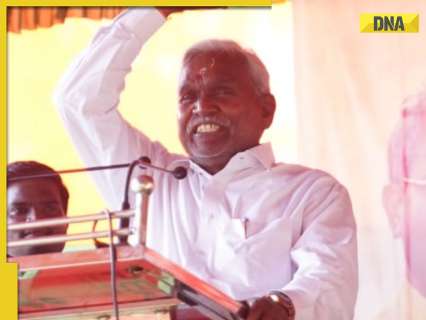
Former Jharkhand CM Champai Soren set to contest from Saraikella.
Swing state official warns village struggling with financial losses after influx of illegal immigrants
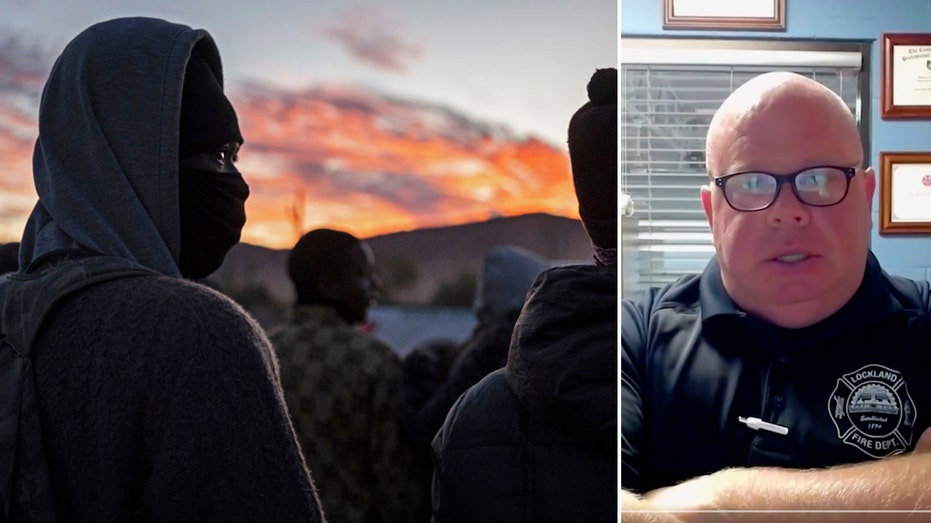
A small village near Cincinnati, Ohio, is struggling with an influx of Mauritanian illegal immigrants, with officials warning that they are facing an economic shortfall as a result and that the quality of life is being affected. “If you look at 2021, 2022, the United States had seen a huge influx of immigrants from Mauritania. Somehow, a good number of them have landed in Lockland,” Lockland Village Administrator Dough Wehmeyer told Fox News Digital. A Washington Post analysis in June found that over 15,000 residents from Mauritania came to the U.S. last year, a 2,800% increase over 2022, when just 543 arrived. Lockland, a village in the southwest of Ohio of about 3,500 people, has seen what it says is a large number of arrivals. The Post reported that there were 2,700 who settled in Ohio in 2023, with about half going to nearby Cincinatti. HAITIAN MIGRATION ROILS TOWN IN KEY BATTLEGROUND STATE WITH SIGNS OF PRO-TRUMP SUPPORT ON THE RISE Wehmeyer said that at least two of the nearby apartment complexes are over-occupied. Apartments should house four people apiece, and authorities are finding up to 12 people in each unit. “You have an apartment building that’s . . . say, 80 units at four people per unit. That’s about 320 people. When you double or maybe even triple that population, the building systems aren’t designed to handle that.” “So when you use the utilities, that’s backing up. We have instances where people are going in to take a shower and feces is running out of the drains, filling the bathtubs as it comes from a floor above. That’s compounded probably by the cooking methods that they use, which is a heavy grease-laden process.” He also noted that a building designed to have 320 people in it, but that may have significantly more, also comes with the risk of not having enough exits, and he said there have been issues with people getting out of buildings during fires. TRUMP SOUNDS ALARM ON ILLEGAL IMMIGRANT MURDERERS: ‘A LOT OF BAD GENES IN OUR COUNTRY’ He also noted the financial strain it has put on the small community. Illegal immigrants claiming asylum may not work right away, and it can be months before they are qualified for work permits if they claim asylum. “So, most of the immigrants living in Lockland are unable to work. And if they are unable to work, they’re unable to pay taxes,” he said. “And they have essentially displaced the taxpaying residents of these 200 apartment units and filled them with non-tax-paying residents. We’re losing about $125,000 to 150,000 in revenue because of that.” He says the village has requested help from congressional offices, and has met with a few, as well as state representatives and the governor’s office. He says that Lockland is looking for financial assistance to recoup the financial losses the village is facing, but believes progress is being made. “I don’t know how they found our small village. We like it. We think it’s a great place to live, but the quality of life here is definitely being affected by this problem,” he said. Lockland’s struggles echo those in other towns and cities across the country where there have been a significant influx of migrants. Towns like Springfield, Ohio, and Charleroi, Pennsylvania, have seen a significant increase in the number of migrants from Haiti. Meanwhile, cities like Chicago and New York have been vocal in the strain that influxes of hundreds of thousands of migrants from across the border have had on their cities. Meanwhile, immigration has become a top issue for voters ahead of the 2024 election, with many polls showing former President Donald Trump with a strong lead over Vice President Kamala Harris on handling the issue.
Meet Vijaya Kishore Rahatkar, the newly appointed chairperson of NCW

Rahatkar served as the Chairperson of the Maharashtra State Commission for Women from 2016 to 2021 and as the Mayor of Chatrapati Sambhajinagar from 2007 to 2010.
Who is IPS Anurag Gupta, acting Jharkhand DGP removed by EC ahead of Assembly polls?

During the 2019 Lok Sabha polls, IPS Gupta was relieved of his duties as ADG (Special Branch), Jharkhand, following allegations of biased conduct made by the Jharkhand Mukti Morcha (JMM).
